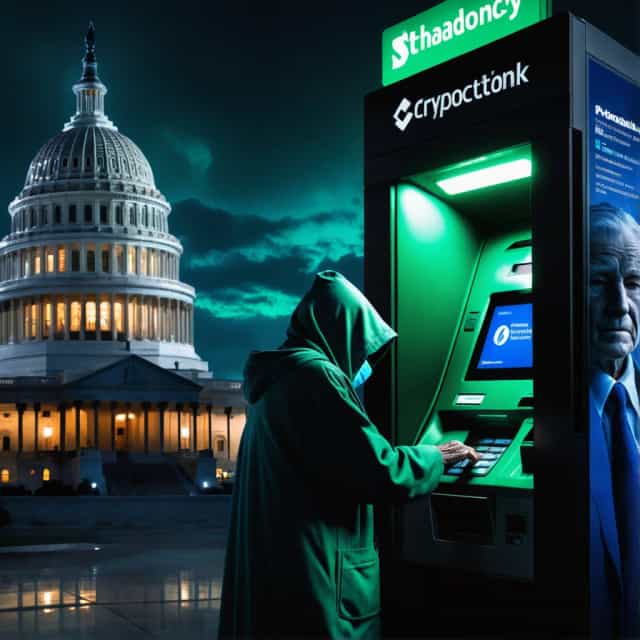
Image source: Block Media
Institutionalizing South Korea’s Digital Asset Market: A Transformative Milestone
South Korea’s digital asset market is undergoing a structural evolution as it moves toward institutionalization. With the introduction of the Digital Asset Basic Act and legislative action surrounding stablecoins, the foundation for a well-regulated market ecosystem is being established. This shift is expected to attract substantial capital inflows and stimulate market growth. A focal point of this transition, the upcoming BlockFesta 2025, promises to play a pivotal role in shaping the trajectory of South Korea’s digital finance landscape.
BlockFesta 2025: Bridging Policy and Innovation
Scheduled for September 26 at Seoul’s Textile Center, BlockFesta 2025, orchestrated by the prominent media firm Blockmedia, is set to bring together policymakers, blockchain pioneers, and leading industry voices. Notable attendees include Member of Parliament Kim Jae-sup, former Financial Services Commission (FSC) Director Yoo Jae-soo, ex-Minister of SMEs and Startups Park Young-sun, and Arthur Hayes, co-founder of BitMEX. Contributions from institutions like the Korea Capital Market Institute highlight the conference's importance.
The timing of BlockFesta is critical. As South Korea’s blockchain ecosystem aligns with institutional norms, the event seeks to provide a forum for analytical insights and strategic dialogue. Tiger Research, in collaboration with BlockFesta, has also published a comprehensive report detailing the opportunities and challenges that lie ahead for the country’s digital asset market. This thought leadership positions BlockFesta as a guiding light for stakeholders seeking to navigate South Korea’s fast-evolving Web3 landscape.
South Korea: A Digital Asset Powerhouse
In 2025, South Korea has emerged as a global leader in digital asset trading, driven largely by its exchange-centric cryptocurrency ecosystem. According to Kaiko, the South Korean won accounts for the second-largest share of global crypto trading volume, trailing only the U.S. dollar and outpacing currencies such as the Japanese yen and the euro. At one point in Q1 2025, won-based trading volumes even briefly surpassed dollar-based transactions, underscoring the vibrancy of the domestic market.
Key to this dominance are South Korea’s major local exchanges, like Upbit and Bithumb. These platforms not only facilitate significant trading volumes but also rival traditional financial markets, with cryptocurrency exchange activity in 2025 occasionally surpassing or equaling the monthly trading volumes of the KOSPI stock market. Retail investor participation is another cornerstone of the ecosystem, with approximately 10 million Koreans—over 20% of the population—engaging in cryptocurrency trading, far outpacing adoption rates in other developed economies.
South Korea’s influence extends beyond trading statistics. Global Web3 initiatives frequently prioritize the country in their go-to-market strategies, alongside the U.S. and Chinese markets. Additionally, neighboring Asian economies view South Korea as a model for cryptocurrency market development, further cementing its position as a regional leader.
Structural Limitations: A Growing Concern
Amid the impressive trading volumes lies a series of structural deficiencies that could hinder long-term sustainability.
Challenges of an Exchange-Centric Model
South Korea’s cryptocurrency exchanges are central to the market but face inherent constraints. Restricted by regulatory frameworks, these platforms are limited to earning transaction fees, forcing many to diversify into unrelated ventures like real estate investments. This lack of vertical integration hampers their ability to drive broader blockchain innovation.
Adding to this, trading volumes within South Korean exchanges have declined, registering a 62% drop from their 2021 peaks. This downward trajectory has diminished their global competitiveness, particularly as decentralized exchanges (DEXs) and international platforms gain prominence.
Regulatory Stagnation: A Double-Edged Sword
While the United States has embraced crypto institutionalization with frameworks like the CLARITY Act, South Korea’s regulatory approach remains cautious. The nation employs a positive regulatory system where only explicitly allowed activities are permitted, inhibiting experimentation and innovation. For instance, the number of licensed Virtual Asset Service Providers (VASPs) has plateaued since 2021, and the development of key sectors like institutional custody and stablecoins has stalled domestically.
This conservative stance has left South Korea trailing in areas that are vital to the global crypto economy. Without robust regulatory adaptation, the nation risks ceding its leadership position as other markets advance their frameworks.
2025: Institutionalization as a Game-Changer
The year 2025 holds promise for reshaping South Korea’s digital asset market, with a focus on addressing existing weaknesses and building global competitiveness. Legislative priorities include the Digital Assets Basic Act and proposed laws governing stablecoins and digital asset innovation. These policy advancements mark a departure from a defensive posture centered on anti-money laundering (AML) measures and investor protection to one encouraging growth and innovation.
Institutional Investors Enter the Fray
Historically, regulatory constraints have dampened institutional participation in South Korea’s crypto market. Corporations were barred from opening trading accounts, and offering products like Bitcoin exchange-traded funds (ETFs) was prohibited. However, 2025 brings the first signs of change.
The FSC has introduced a phased roadmap to facilitate institutional engagement. Phase one grants corporations access to cash accounts for crypto conversion, while subsequent phases will permit selected institutional investors to engage in direct crypto trading. A Bitcoin spot ETF framework is also under review, with expectations of approval later this year.
Institutional actors are poised to stabilize the market. In the U.S., institutions account for over 70% of transactions on platforms like Coinbase, and a similar outcome is projected for South Korea. Furthermore, corporate adoption of decentralized finance (DeFi) solutions for liquidity management and risk hedging could catalyze additional growth and market solidity.
Broadening Industry Opportunities
Opening crypto accounts to businesses unlocks a plethora of opportunities beyond direct investments. Blockchain infrastructure, custody services, digital wallets, and payment solutions all stand to benefit as regulatory barriers are dismantled. This shift legitimizes the broader blockchain ecosystem and facilitates innovation on multiple fronts.
For instance, businesses could utilize crypto assets for operational liquidity and settlements. Startups operating within the blockchain sector may also gain venture support through government initiatives, including funding programs driven by the Small and Medium Business Administration. These developments pave the way for a more diversified and resilient industry.
Stablecoins: The Next Frontier
At the core of South Korea's future digital asset market lies the potential introduction of a stablecoin backed by the Korean won. Proposed legislation outlines stringent requirements for stablecoin issuers, including full reserve backing, stringent capital thresholds, and asset segregation protocols. The potential rollout of a stablecoin could drive financial inclusion and establish South Korea as a forerunner in currency-backed digital assets. However, regulatory fragmentation poses challenges, as conflicting interests between oversight agencies could hinder implementation.
Overcoming Hurdles
While meaningful progress is being charted, South Korea’s digital asset market is not without its obstacles. Fragmented governance, competing agency interests, and slow regulatory adaptation could stall the country’s crypto evolution. Moreover, with global competitors like the U.S. and EU advancing rapidly, South Korea must act decisively to avoid falling behind.
Nevertheless, the growing consensus among policymakers and industry leaders highlights the strategic importance of digital assets to South Korea’s economic future. Incremental reforms may lead to substantial long-term progress, positioning South Korea as a key player in the institutionalized global digital economy.










